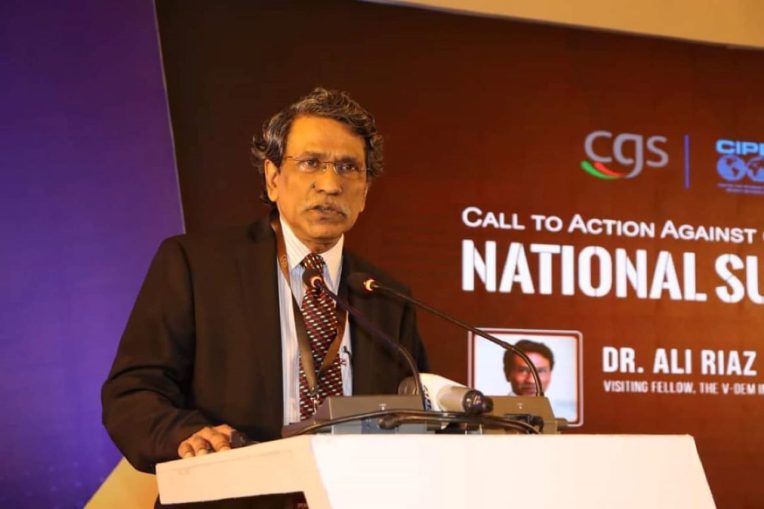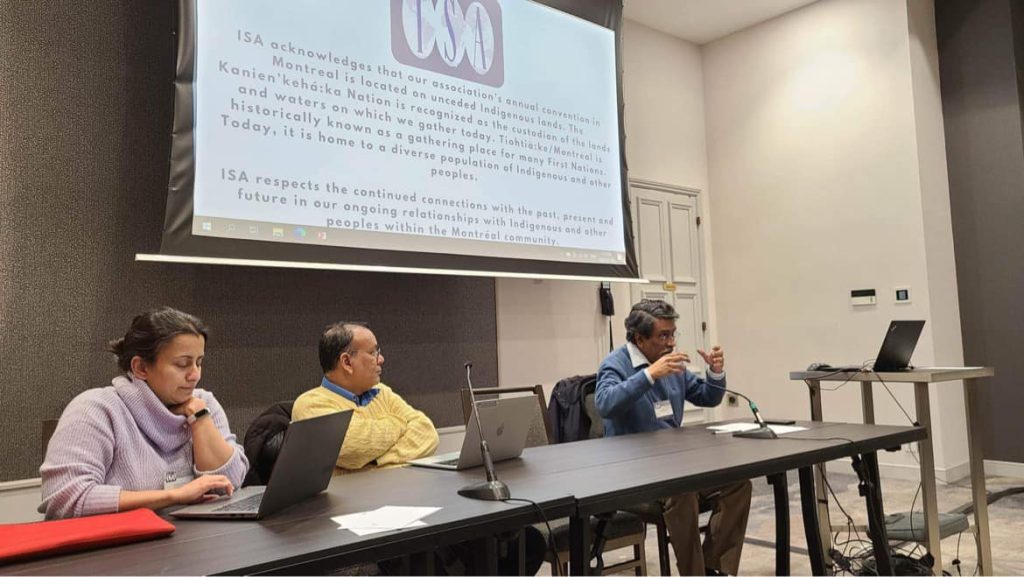Distinguished Professor Dr. Ali Riaz has made two presentations in Montreal and Dhaka.
In Montreal, Riaz presented a paper titled “The Return of Populist Politics in Bangladesh” March 16 at the International Studies Association (ISA) Annual Convention. The paper explored the rise, demise, and resurrection of populism in Bangladeshi politics since its independence in 1971.
Riaz argued that Bangladesh’s first stint with populism began immediately after independence with Sheikh Mujibur Rahman as the leader, but unlike the recent upsurge of populism from below in Europe and the United States, it was a top-down process—a statist populism led by the ruling party with an agenda to transform society. The country, however, after 2009, experienced the emergence of a different kind of populism. It bears the markers of authoritarianism and is promoted by the same political party—the Bangladesh Awami League, under Sheikh Hasina.
At Dhaka, Riaz delivered a lecture titled “A Call for Action against Corruption” March 21 at a conference organized by the Center for Governance (CGS). The conference was organized at the conclusion of a research project led by Riaz on the nature and scope of corruption in the private sector, especially the small and medium enterprises (SMEs) in Bangladesh.
Highlighting the findings of the project supported by the Washington-based organization Center for International Private Enterprises (CIPE), Riaz said there is no doubt about the prevalence of corruption in the country and the widespread corruption is hindering the potentials of the SME sector and limiting its contribution to the economic growth of the country.
Riaz said entrepreneurs, civil society organizations and watchdogs must put pressure on the government to curb corruption. He further noted the work could be done by creating a new platform as the large trade bodies have failed to do so.


